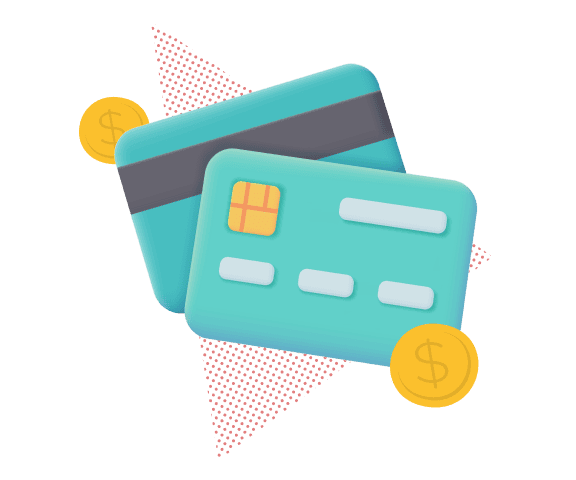How Do Credit Card Companies Make Money?
Updated: 17 Dec 2025
Written bySingSaver Team
Team
The information on this page is for educational and informational purposes only and should not be considered financial or investment advice. While we review and compare financial products to help you find the best options, we do not provide personalised recommendations or investment advisory services. Always do your own research or consult a licensed financial professional before making any financial decisions.
Credit cards are part and parcel of Singaporean life, offering perks and convenience. But ever wondered how the companies behind them actually profit? It's a blend of interest, fees, and what merchants pay. Knowing the ropes can help you play it smart with your cards and dodge those extra costs.
How credit card companies in Singapore work
In Singapore, the credit card ecosystem involves key players: issuers and networks.
-
Issuers: These are the financial institutions that provide you with your credit cards. Major banks in Singapore like DBS, OCBC, UOB, and Citibank, act as issuers. When you use a credit card, you're essentially borrowing money from these issuers. Many retailers also offer "co-branded" cards, which are typically issued by a bank in partnership with the retailer.
-
Networks: These are the companies that facilitate credit card transactions. In Singapore, we've got the big global players: Visa, Mastercard, and American Express. They handle the money and info flowing between banks and shops.
>> MORE: How does a credit card work
Of course, the Monetary Authority of Singapore (MAS) keeps everyone in check. They set the rules to keep our financial system solid, protect us consumers, and make sure things are fair. This includes stuff like how interest rates are shown, fee structures, and responsible lending.
>> MORE: How to choose a credit card
🧧 SingSaver CNY 2026 Flash Deal 🧧
Get an extra S$68 eCapitaVoucher on top of your reward! 🧧 For a limited time only, the first 8 eligible applicants at 2pm and 8pm daily will score this bonus when applying with Citi, HSBC or OCBC credit cards. Valid till 26 February 2026. T&Cs apply.
✨Get the Reward Upgrade You Deserve✨
Get your dream Apple, Dyson, Sony, or Nintendo gadgets when you apply for select Citi, HSBC, OCBC, or Standard Chartered credit cards via SingSaver and top up as low as S$60! Valid till 1 March 2026. T&Cs apply.
Understanding where credit card companies get their money
Credit card companies rake in money from a few different places, with both us as the cardholders and the shops we buy from chipping in.
Interest
This is how banks get profit from credit cards. If you carry a balance over to the next month, you'll be paying interest on what you owe.
-
Interest rates in Singapore can vary depending on your card and your credit score. Typically, you might see rates around 25% to 30% per year.
-
Just paying the minimum each month? That'll drag out your debt and seriously ramp up the total interest you'll pay. This is one way banks make money from credit cards.
>> MORE: Best high-value credit cards in Singapore
Fees
Credit card companies also have various fees, which help them with how banks make a profit from credit cards. These include:
-
Annual Fees: Many cards, especially the ones with top rewards, have annual fees. In Singapore, these can range from zero for basic cards to S$300 or more for premium ones.
-
Cash Advance Fees: Getting cash advances with your card? That'll cost you, often around 6-8% of the amount (with a minimum, say, S$15).
-
Late Payment Fees: Miss the payment deadline, and you'll likely get a late fee. MAS sets limits on these, and they're usually around S$100.
-
Foreign Transaction Fees: Using your card overseas or for foreign online purchases can add extra charges. For example, DBS Visa/Mastercard might charge up to 3.25% on the transaction.
>> MORE: When to pay your credit card annual fee
Interchange
Whenever you use your credit card at a shop or online, the merchant pays a processing charge. A portion of this charge, known as the "interchange fee," flows to the bank that issued your card via the payment network. Typically, this fee ranges from a small percentage of the transaction, and the exact amount is determined by the payment networks. Factors like the type of credit card, the total amount of the purchase, and the kind of business all play a role in setting the interchange fee.
These fees can influence how merchants set their prices, as they might include these costs in what they charge you. Additionally, some merchants might choose not to accept certain credit cards if the interchange fees are too high for their business.
Smart moves to keep your costs down
Remember, you're in control! Credit card companies rely on us, but you can minimise what they make from you. Here's how to avoid those extra charges:
-
Paying your balance in full and on time is the best way to avoid interest. This is especially important when thinking about the best time to pay off your credit card.
-
Keep an emergency fund. Having one means you won't need those costly cash advances when push comes to shove.
-
Look for cards without annual fees or ask for a waiver.
-
Set up reminders or automatic payments to avoid late fees.
-
Use cards with no foreign transaction fees when travelling.
Find the credit card that works for you!
Whether you want to save on interest or maximise rewards, we’ll help you pick the best card in minutes. Explore options tailored to your spending habits.
Relevant articles
The Best Credit Cards for Young Adults in Singapore (2025)
The right credit card can earn you substantial rewards and savings. Here, we shortlist the best credit cards designed to support the lifestyles of young working adults in Singapore.
Stay ahead in everything finance
Subscribe to our newsletter and receive insightful articles, exclusive tips, and the latest financial news, delivered straight to your inbox.
About the author
SingSaver Team
At SingSaver, we make personal finance accessible with easy to understand personal finance reads, tools and money hacks that simplify all of life’s financial decisions for you.

